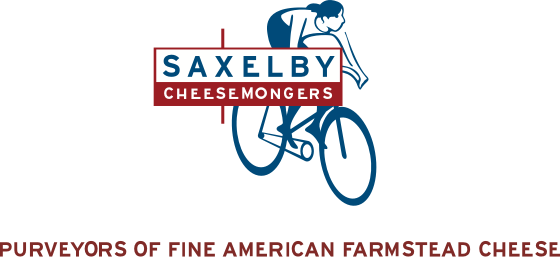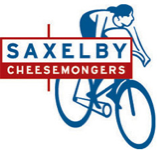
When they purchased Nettle Meadow Farm in 2005, Sheila Flanagan and Lorraine Lambiase didn't think they'd have to begin by opening an old goats home. "There were only 36 goats when we first got there," Flanagan says, "and maybe 20 of them were ready for retirement. Of the 36 original girls I believe only 10 were in the production barn two years later." They now have 150 critters living happily in the Boca Raton of the Adirondacks: mostly goats and sheep, but also ducks, chickens, donkeys, horses, peafowl, pigs, and Scottish Highland cows. Not to mention the farm's 800 working goats, sheep, and cows, along with a couple guard llamas to keep the coyotes at bay.
Nettle Meadow is the producer of Sappy Ewe and our bestselling Kunik, a bloomy rind goat's milk cheese spiked with Jersey cream that was recently honored as one of the world's top 20 cheeses from the World Cheese Champion Contest. The quality of their cheese reflects not only Flanagan and Lambiase's commitment to traditional cheesemaking, but also their passion for animal welfare.

"I believe, and I've spoken with many dairy people who agree," Flanagan says, "that when you beat up milk by pumping it through hundreds of feet of lines and slosh it in tanks, that you change its flavor," and not for the better. At Nettle Meadow, "everything is hand poured, from milk into bulk tanks and cheese into individual molds."
Cheese sales in turn get invested back into the animal sanctuary. "It's part of our giving back; as we've grown we have a lot of older animals, and this allows us to take care of them."
In the right hands, happy cows, goats, and sheep make for happier cheese. However a goat that lives for 12 years may produce milk only for seven of them. Flanagan and Lambiase feel that the care they owe their animals doesn't end once those animals stop contributing to the farm's bottom line. Recently retired goats get to burn off energy running around a repurposed dairy barn; older and injured ones require more hands-on attention, so they stay in a separate building that functions as an assisted living facility.

In fact, most of the animals on Nettle Meadow's farm are retired. The bulk of their production herd is leased to family farms that sell milk back to Nettle Meadow. "A lot of small farms in New York State are finding it harder to maintain a cow milk contract with liquid milk corporations," Flanagan says. Renting animals allows those farms to generate a steady income without the significant upfront cost of starting a herd.
At this point in their career as cheesemakers, Flanagan and Lambiase are ready to share the work of tending to a production herd: "For the first 15 years we were in the barn until 2am kidding and lambing"—farmer talk for the vital work of helping goats and sheep give birth in the spring. "Lorraine and I are getting up in years," she continues. The wheels of farm life turn. "Now there are younger families who get to have those middle of the night experiences."
Which isn't to say Nettle Meadow is slowing down—quite the opposite. Just this month they're opening a 17,500 square foot facility near Lake Luzerne that includes new cheesemaking equipment, more room for aging cheese, offices, and a tavern and retail space.

Flanagan and Lambiase worked corporate jobs before they decided to drop everything and become farmstead cheesemakers. So do they feel like they're living the dream? "We thought that by doing this we'd have more time to spend with our animals," Flanagan admits, "but we’re still winning awards and have hired new people who will be the cheesemakers and animal caregivers of the future. There's so much joy and experience in this life. When we're done we'll know we really lived it."
Taste Nettle Meadow Farm's Sappy Ewe, Big Kunik, and Mini Kunik!
Photos courtesy of Nettle Meadow Farm, shot by Maret Sotkiewicz

